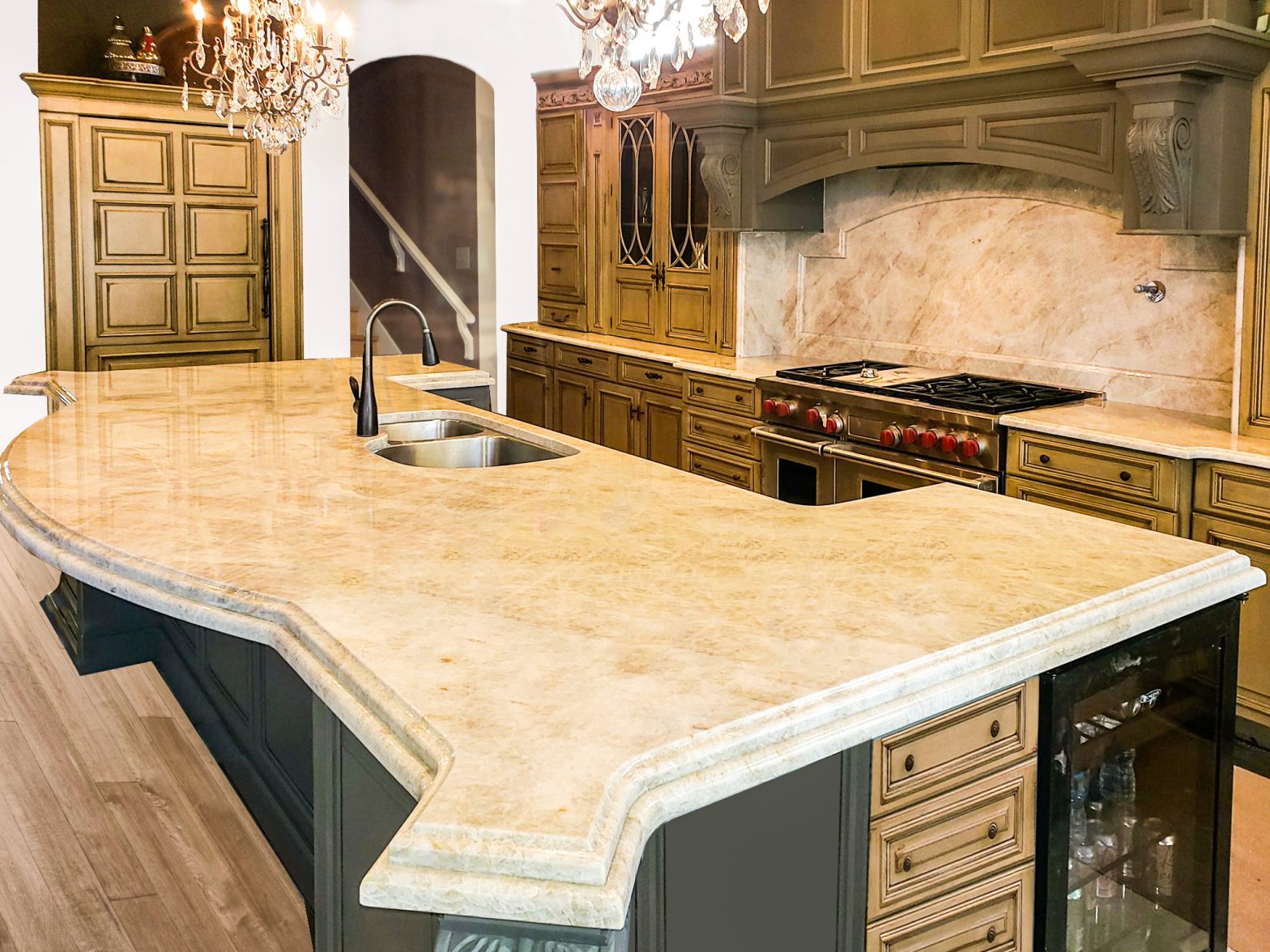
When choosing a material for your kitchen or bathroom countertops, it is important to choose a low-maintenance and durable material that will hold up to the everyday wear and tear the surface will experience.
Two of the most popular materials for kitchen and bathroom countertops are granite and quartz. Each of these materials is a great option for bathroom or kitchen countertops. Granite provides a more natural look but can be more expensive, while quartz offers a budget-friendly yet slightly more artificial appearance.
Quartz is an engineered material made as quartz or quartzite, whereas granite is a naturally occurring material that is mined from the Earth. Quartzite is a natural material, but engineered quartz is made up of minerals and crushed rock that are set in resin.
Granite is an igneous rock formed through the process of cooling magma. Granite contains feldspar, quartz, and many other minerals providing a natural and unique look. Granite is mined in large slabs from the earth.
When silicone crystalizes, quartz is formed. This is the second most abundant mineral found in the Earth’s crust, with feldspar being the first. Quartz Is found in almost all types of igneous rocks, sedimentary and metamorphic rocks. When shopping around, it is important to note that natural quartz countertops are quartzite, whereas standard quartz is engineered quartz.
Quartzite is a natural, metamorphic rock. It starts out as sandstone and then transforms to quartzite while under intense heat and pressure. Quartzite is mined in large slabs and has a rough texture.
Engineered quartz is manufactured using a blend of crushed rocks that contain quartz and resin to hold it all together. Much of the engineered quartz is made up of quartz rocks which are bonded using the resin and baked with pigments to give color to the engineered slab. Since this type of quartz is engineered, you can choose from a wider variety of colors and patterns when compared to natural quartz or granite.
Learn the benefits of obtaining your quartz countertops from local companies!
When it comes to quartz and granite, each has many pros for use in the bathroom and kitchen countertops. Express Cabinet and Granite would like to share some of these with you.
Thinking about a quartz countertop? Learn the difference between quartz and quartzite!
Granite is scratch and stain resistant but does require regular sealing to maintain these properties since it is porous. Quartz is non-porous so it does not require sealing. However, it can stain if dark or dyed liquid spills are not cleaned up quickly. Each material is easy to clean to minimize bacteria build-up and staining.
In addition to maintenance, durability is also critical when choosing a material for your countertops. Quartz is engineered to be durable and is more flexible, making it less prone to breaking. However, quartz is only scratch resistant, not scratch proof and the uniform color makes any scratches more visible.
Granite is resistant to chipping and scratching. The edges of the countertops and corners can be vulnerable to chipping, and so is the countertop surface if hard objects hit the surface. If chipped granite can be difficult to repair.
While quartz can handle temperatures up to 150 degrees and granite will not discolor due to heat, it is always recommended that you use hot pads on your countertops to avoid damage.
Granite and quartz are durable and attractive materials for both bathroom and kitchen remodels. When it comes to bathroom countertops, quartz is recommended due to its non-porous qualities. This means it will be resistant to water damage and won’t stain due to toothpaste, shampoo, and other bathroom products.
For kitchen countertops, granite is a popular choice due to its durability and resistance to heat. While granite needs resealed to remain moisture-resistant, the durability, heat resistance, and scratch resistance make it a great option for your kitchen.
If you are ready to add value and beauty to your home, granite countertops are the way to go. At Express Cabinet & Granite, we offer a high-quality selection of granite countertops for your next Pittsburgh remodeling project. Contact us for an appointment today to learn more!
Additionally, you can read 8 Tips on Granite Countertops!